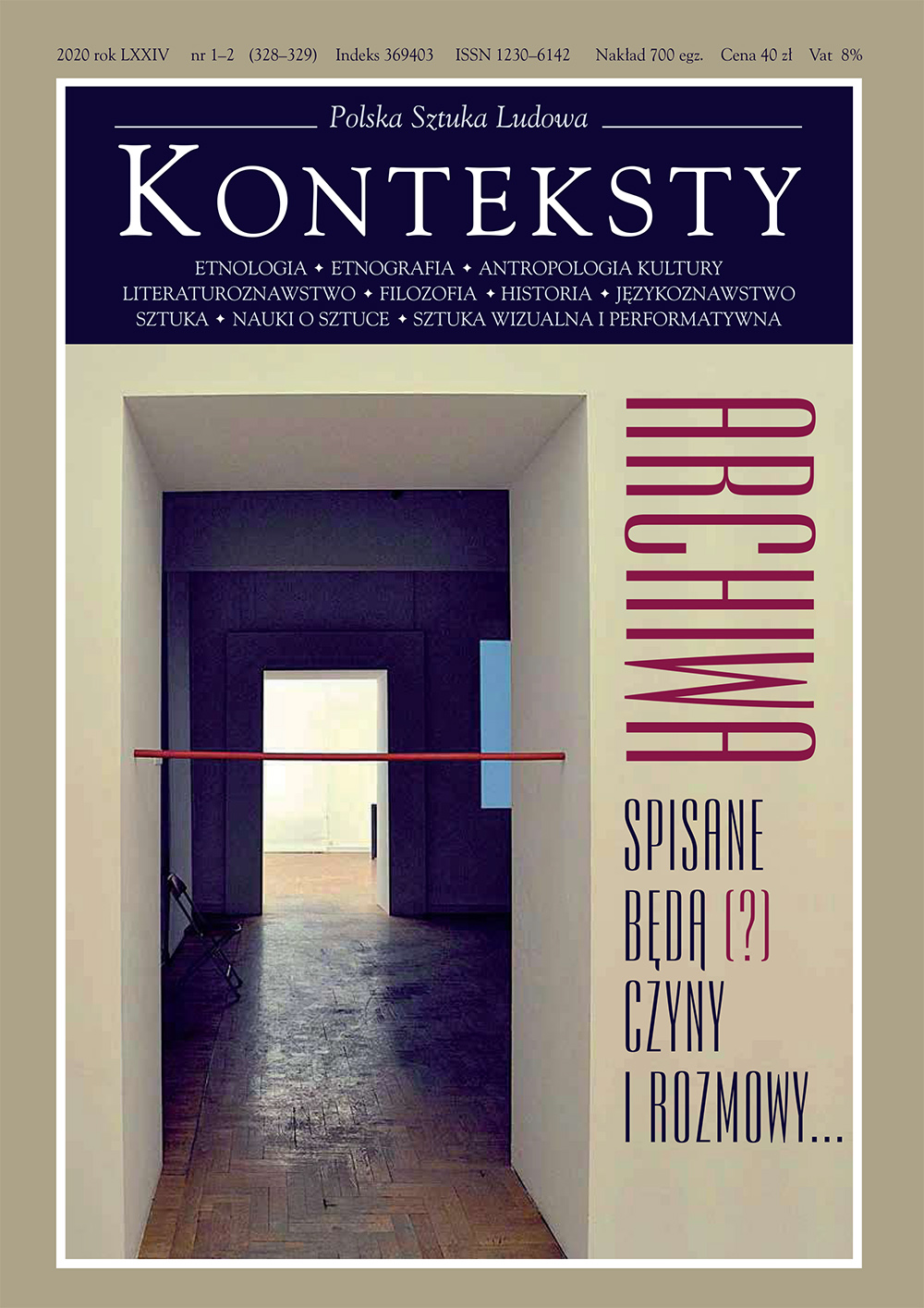Atopia archiwum. Maszynopisy esejów politycznych Aleksandra Wata z lat 60.
Atopy of an Archive. Typescripts of Political Essays by Aleksander Wat from the 1960s
Author(s): Michalina KmiecikSubject(s): Language and Literature Studies
Published by: Instytut Sztuki Polskiej Akademii Nauk
Keywords: Aleksander Wat;archive;language
Summary/Abstract: An attempt at describing the Aleksander Wat archive as a space that makes it possible to present the non-identity of the text, its multi-verse nature as well as non-continuous and defective (understood as: subjected to the impact of an illness) character. In order to achieve this goal it is necessary to create a theoretical constellation in which concepts of atopy and defective subjectivity will be included; they will make it possible to draw attention to the expropriation of rough copies/typescripts from the universe of the oeuvre. The notion of topos is supported by editions prepared by researchers (Świat na haku i pod kluczem, prep. by K. Rutkowski; Publicystyka, prep. by P. Pietrych): harmonised editions re-constructing the leitmotifs of Wat’s essays and granting his scattered and deformed sketches a holistic shape. Atopy is a non-place, a seat of incohesion, in which products with an unstabilised ontological status may exist. It is precisely within atopy that texts infected with Wat’s physical and psychic dissolution could take root. The conception of the archive’s atopy is illustrated by analyses of excerpts from political essays about the Chinese-Soviet conflict – an excellent example of the dismembered body. The author of this article observes them from a poetological viewpoint: analysing their composition, seeing certain regularities in shaping the syntax, and a compulsive perpetration of always the same errors as well as curious manners of “accelerating writing” so as to keep up with thought. Thus created notes become a reflection of somatic and psychological “crushing” by assuming the form of “verbal pulp”, a logorea not subjected to the control of the conscious mind. In this way deciphering their contents proves to be a difficult task relegated to the background by the infected (and infectious) text, which changes into a “code without a message” (G. Genette).
Journal: Konteksty
- Issue Year: 329/2020
- Issue No: 1-2
- Page Range: 371-377
- Page Count: 7
- Language: Polish
- Content File-PDF

